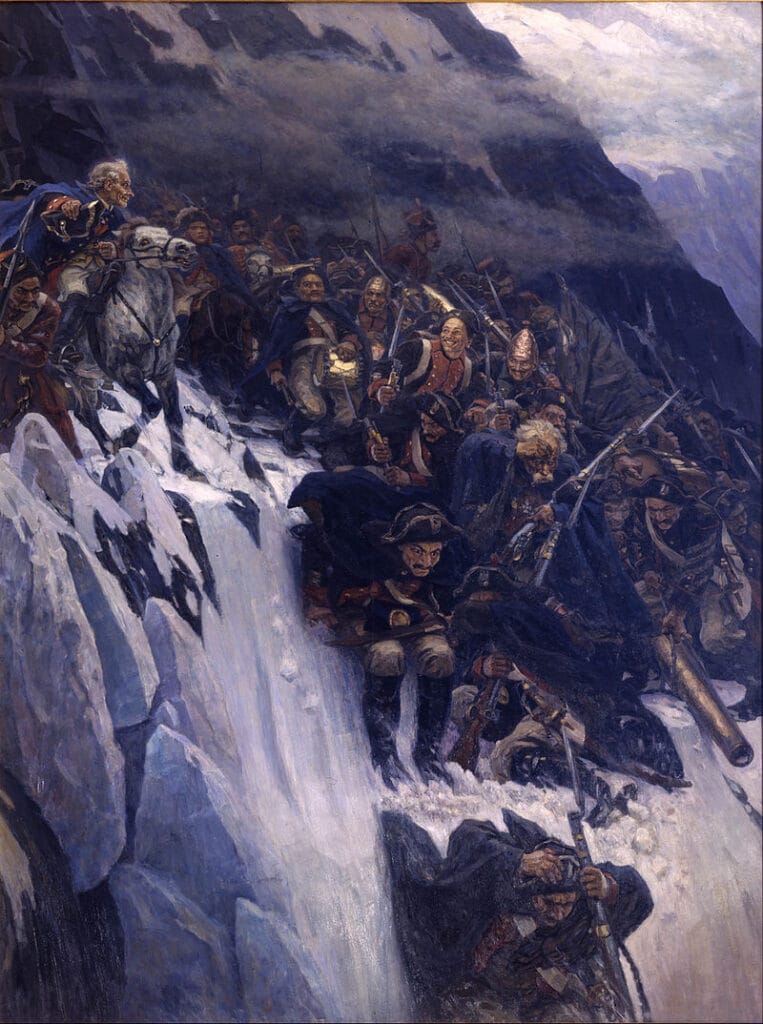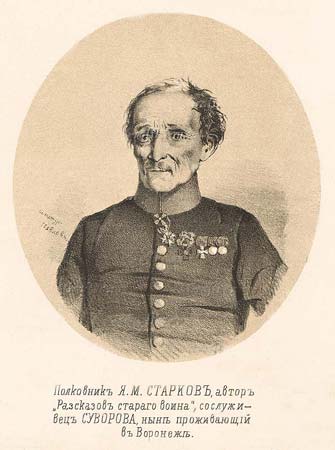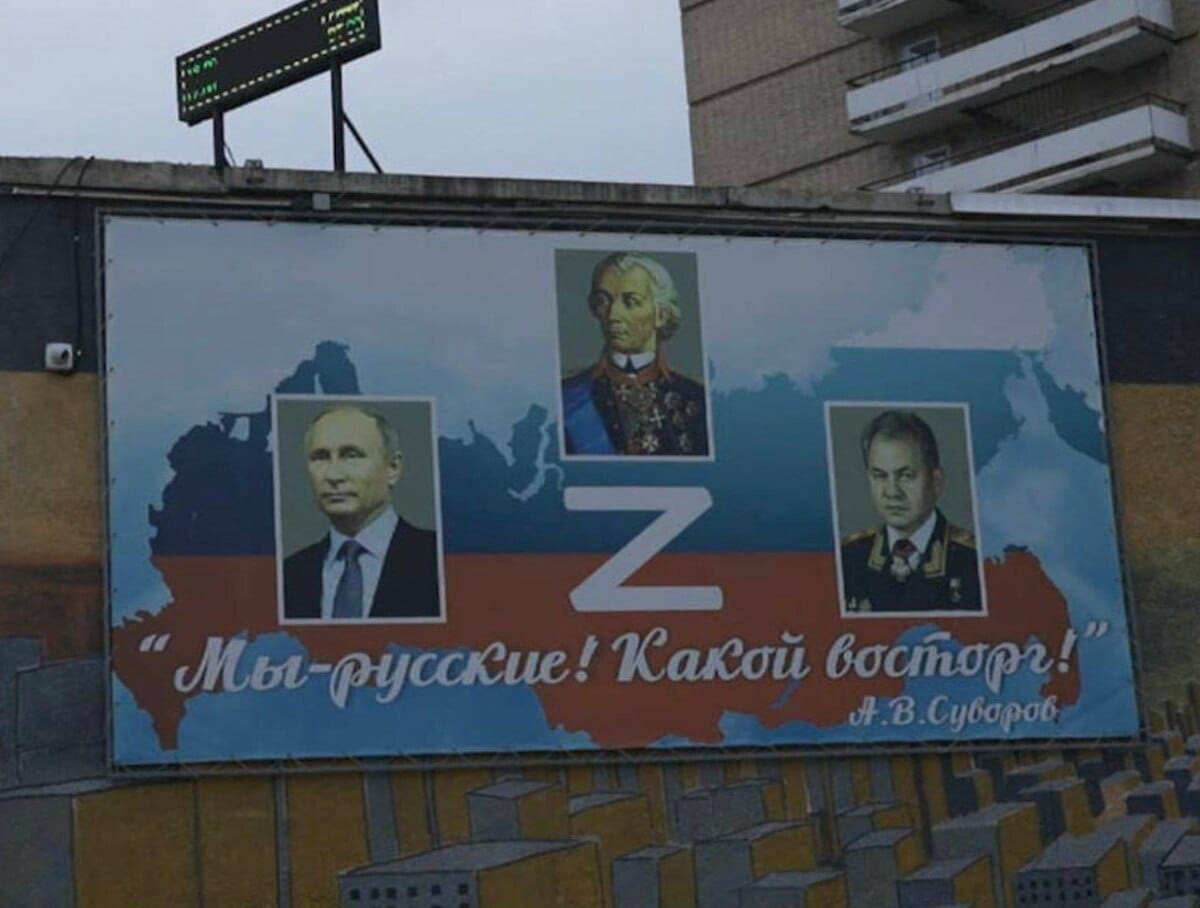The phrase, which is attributed to Alexander Suvorov, is often placed on posters and quoted in books and in the media. We decided to check whether these words truly belong to the Russian commander.
The phrase “We are Russians! What a delight! indicating the authorship of Suvorov is found in many books devoted to reflections on the fate of Russia: for example, among writers Alexandra Prokhanova And Zakhara Prilepina, from journalists Maxima Shevchenko And Arkadia Mamontova. They also place it on propaganda posters - in September 2023, such a banner noticed in Khakassia, the portrait of Suvorov was adjacent to photographs of Russian President Vladimir Putin and Defense Minister Sergei Shoigu.
It was not possible to find the quote as stated by Alexander Suvorov himself. She's not there either in the works commander, nor in his correspondence. In his essay "The science of winning”, dedicated to the theory and practice of military affairs, there is the phrase “what a delight”: “Gentlemen officers - what a delight!” But, firstly, there is nothing there about Russians, and secondly, the phrase is used in a completely different context: in this case, it is rather a motivating exclamation.
By the end of the 19th century, many biographies of Suvorov had been published, the most detailed of which was a three-volume work “Generalissimo Prince Suvorov"(1884), written by military historian Alexander Petrushevsky. But there is nothing similar there, despite the fact that the author cited archival documents, memoirs of contemporaries, and even historical anecdotes. This quote is not found in later biographies of the Soviet era either. In the book "Suvorov" (1949) describes how the commander encouraged his soldiers after difficult crossing of the Alps in 1799. Among other things, Suvorov allegedly said: “We are Russians, we will overcome everything!”

Many modern articles clarify that the phrase “We are Russians! What a delight! Suvorov said it precisely then, during the Swiss campaign of 1799. The most detailed source that contains the direct speech of the Russian Field Marshal is the memoirs of Yakov Starkov, a direct participant in that military campaign. In 1799, he was a non-commissioned officer, then rose to the rank of colonel and served as aide-de-camp to General Peter Bagration. Starkov's memoirs were published under the title "Stories of an old warrior about Suvorov"in 1847. It is there that another famous phrase of the Russian commander is found: “We are Russians, God is with us.” Starkov describes council before the battle in the Muten Valley, at which Bagration was also present. It is from the words of Bagration that Starkov retells what is happening; the non-commissioned officer himself could not have been an eyewitness: “Alexander Vasilyevich fell silent for a minute and then, looking at us, said: but we are Russians! God is with us! - and this quick, majestic look of his, and these words overwhelmed the heat that was boiling in our souls.”

The first mention of the phrase “We are Russians!” What a delight! can only be found in sources from the mid-20th century. In 1948, the emigrant publication “Our Country,” published in Argentina, published an article by Leonid Kutukov “Towards the miracle heroes" The author, a former officer of the imperial army, a figure in the Russian emigration in Paris, describes in this essay his journey through the Swiss mountains. He talks about memorable places of Russian military glory and, in particular, quotes: “God have mercy! We are Russians, what a delight!” The origin of this phrase is unknown: it can be assumed that the author quoted from memory and combined various statements by Suvorov.
The quote then appears in Alexander Solzhenitsyn’s article “Repentance and self-restraint as categories of national life”, included in the collection “From Under the Blocks” (1974). Solzhenitsyn, discussing national self-awareness and blind patriotism, cites this phrase as an example: ““We are Russian, what a delight!” - exclaimed Suvorov." Moreover, he further refers to the philosopher Fyodor Stepun, who lived in exile, who called for a critical attitude towards such an expression of patriotism. Stepun actually has such a phrase in his article “Homeland, foreign land and fatherland"(1955). But the philosopher, however, does not mention Suvorov.
Thus, there is no evidence that this quote belongs to Alexander Suvorov. This phrase is not found either in the texts of the commander himself or in the memoirs of his contemporaries. Most likely, it arose as a result of the combination of several individual phrases of Suvorov (or attributed to him), and became widespread thanks to Alexander Solzhenitsyn.
Cover photo: social networks
- Did Suvorov say: “The war is not over until the last soldier is buried”?
- Did Suvorov say: “The bad soldier is the one who does not dream of becoming a general”?
- Is it true that the author of the expression “English woman shits” is Alexander Vasilyevich Suvorov?
If you find a spelling or grammatical error, please let us know by highlighting the error text and clicking Ctrl+Enter.






